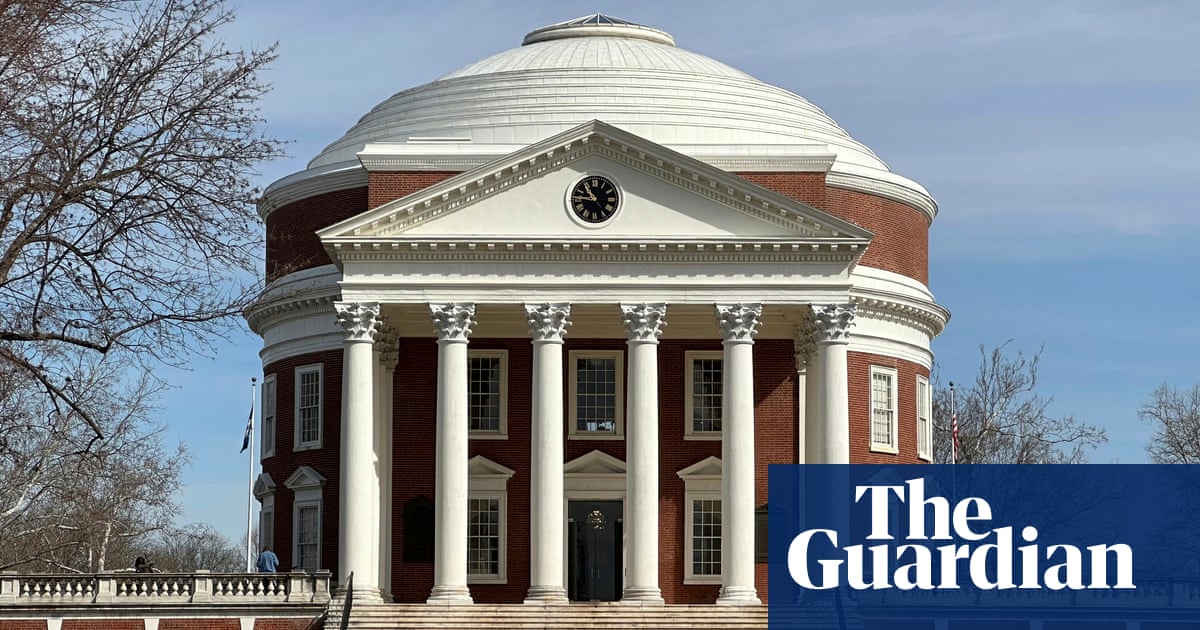Trump Administration's Alleged Threat to UVA: A Battle Over Academic Freedom and Diversity Policies

"Trump Administration's Alleged Threat to UVA: A Battle Over Academic Freedom and Diversity Policies"
In a dramatic escalation of political pressure on academic institutions, the University of Virginia (UVA) found itself at the center of a storm involving alleged threats from the Trump administration. According to Virginia Senator Mark Warner, the administration issued an 'explicit' ultimatum to UVA, warning of severe repercussions including cuts to university jobs, research funding, and student aid, should President Jim Ryan refuse to resign.
During a revealing segment on CBS’s Face the Nation, Warner, a Democratic senator with a keen interest in educational policies, staunchly defended Ryan. He highlighted Ryan’s advocacy for diversity policies, which have been a point of contention with the current administration. Warner forewarned that this incident could set a precedent, potentially targeting other universities that uphold similar values.
The alleged communication to UVA’s leadership was chilling in its clarity. Warner detailed that Ryan was informed of the dire consequences if he resisted the demand for his resignation. "If he tried to fight back, hundreds of employees would lose jobs, researchers would lose funding, and hundreds of students could lose financial aid or have their visas withheld," Warner recounted, painting a picture of a university under siege.
The ultimatum reportedly came with a strict deadline, demanding Ryan’s resignation by 5 PM on a specified day last week, or face the threatened cuts. Warner did not mince words, calling this the "most outrageous action" by the Trump administration in the realm of education since its return to power in January.
On Friday, Ryan stepped down, a decision he communicated with a heavy heart to the university community. His resignation, as reported by the New York Times, was influenced by mounting political pressure from Washington, linked to a Justice Department probe into UVA’s diversity, equity, and inclusion (DEI) policies. In his resignation message, Ryan expressed his unwillingness to jeopardize the livelihoods of his colleagues or the financial stability of students.
Ryan, who had been at the helm of UVA since 2018, was known for his efforts to foster a more diverse and inclusive campus environment. His initiatives encouraged students to engage in community service, reflecting a broader vision for the university.
Warner’s critique of the administration was scathing. He accused federal education and justice department officials of overstepping their bounds, asserting, "They are doing damage to our flagship university. And if they can do it here, they’ll do it elsewhere". His remarks drew parallels to Trump’s ongoing disputes with Harvard University, including efforts to restrict foreign student visas and threats to cut funding over DEI policies.
"They all want to make them like Harvard," Warner observed, underscoring a perceived homogenization of academic institutions. He warned that such actions could deter world-class talent and undermine academic freedom, questioning the very essence of the nation’s educational ethos.
As the dust settles, the implications of this incident resonate beyond Charlottesville, Virginia. It raises critical questions about the intersection of politics and education, the autonomy of academic institutions, and the future of diversity initiatives in higher education across the United States.
🔮 Fortellr Predicts
Confidence: 85%
In the coming days, the University of Virginia (UVA) situation is likely to cause a significant ripple across the higher education sector, sparking both immediate and longer-term consequences. Immediately, UVA's administration, faculty, and student body will confront a period of instability as they grapple with the leadership vacuum created by Ryan's resignation. The board is expected to quickly appoint an interim president to restore order and address the demands posed by federal scrutiny. Nationally, there will be an escalation of tensions between universities and the federal government, with other institutions that have been targeted, like Harvard and the University of California, stepping up their defense against similar pressures. Over the next few days, Virginia's political climate will contend with increased polarization as state-level stakeholders react to this invasion of academic governance. Meanwhile, alumni and donors will weigh in, possibly remodifying their support based on the university's stance and the perceived threat to its academic independence. In the medium term, this incident is likely to spur legislative and judicial interventions as universities seek to fortify their autonomy through legal means. Public universities, in particular, might rally to form coalitions to challenge federal encroachments, thereby contributing to a broader national campaign advocating for academic freedom and limited political interference. Economically, the disruption threatens to deter prospective students and researchers, affecting UVA's standing as a leading research institution. Should federal funding be curtailed, immediate budgetary constraints could push UVA and similar institutions into financial distress, prompting a strategic rethink of financial sustainability and funding diversity.